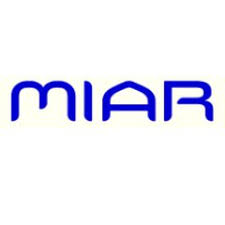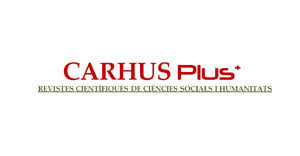Indexed in
Ethics and Malpractice Statement
Monteagudo. Revista de Literatura Española, Hispanoamericana, Teoría de Literatura y Literatura Comparada adheres to the international ethical code of the Committee on Publication Ethics – COPE, Code of Conduct and the Best Practices Guidelines for Journal Editors – and to the Code of Good Practices for Research and Scientific Publications (CBPI) of the University of Murcia.
FOR AUTHORS
- Liability
1.1. The works sent for evaluation in Monteagudo must be original and unpublished, and not be approved or pending publication in another journal.
1.2. Whether it is one or several authors, the personal data (names, institutional affiliation and lines of research) of each of them must be clearly and completely specified.
1.3. When authors decide to withdraw a work before publication, they must notify the editors as soon as possible.
1.4. The authors must respond in a clear, simple and correct way to the comments that the evaluators make about their works, and they must do so as soon as possible.
1.5. The authors will be responsible for obtaining the appropriate permissions to partially reproduce any copyrighted material (images, graphics, texts) (the reference legislation will be that of Spain and the European Union).
1.6. Once an article has been published, its authors must request permission from the journal management for its reproduction in another journal or as a chapter or part of a book.
1.7. Once a work is accepted, the authors will receive a proof version that they must review as soon as possible, sending the editors a list with the errors that have been detected.
- Authorship and co-authorship
2.1. In the case of a text whose authorship has been shared by several people, all the authors involved must grant their consent for the publication of the same. The author or author who appears as a contact person must have the express consent of the other authors.
2.2. Authors are expected to be transparent when it comes to reflecting the support they have had to prepare their texts, indicating whether they have had access to public or private resources, or any other form of financing.
2.3 The signature of the article must reflect the names of those who have contributed to the development of the text, according to the importance of their contributions in regarding the work carried out: from greater importance (first name) to lesser (Last name).
- Honesty
3.1 The authors must present their research honestly and sincerely, without improper manipulation of data.
- Originality
4.1 The authors must ensure the originality of their work, guaranteeing, from the time of submission to the journal, who have not published the same research anywhere else or in any other language.
4.2 In the event that a manuscript contains material that coincides with a work previously published, or still in press or under consideration by another journal, the author must reference it by means of a citation, indicating the status in the where the collected information is found.
4.3 The authors must clearly identify in their investigations those parts that are based on works by other authors, always citing the original.
4.4 It is recommended that authors minimize self-citations in an article, which, in any case, must appear guaranteeing anonymity in the review process. Authors should avoid redundancy and self-plagiarism.
4.5. Monteagudo reserves the right to use anti-plagiarism tools to preserve compliance with established academic and legal standards.
- Conflict of interest
5.1 A conflict of interest is understood to be any situation in which there are secondary motivations in the process of publishing a work in a scientific journal other than strictly research interests. These are relationships of favor or conflict in the personal, commercial, political, academic or financial spheres that may condition the judgment of readers, authors, reviewers or editors of the journal. Therefore, the authors, as initial members of the research process, are expected to disclose any financial support and possible conflicts of interest that may influence the results and have an impact on the interpretation of the article. In the case of financial resources and any other type of sponsorship, this must be declared in a footnote on the first page of the work.
- Blind peer review
6.1. The evaluation method used is "double blind", thus maintaining the anonymity of both the author and the evaluators. The authors will accept the aforementioned procedure at all times. Therefore, they should not include in their manuscripts any reference that could identify them. Anonymous relationships between author and reviewer must be maintained in any case.
6.2. The authors will have the right to propose certain specialists in a research area to act as reviewers of their manuscript. However, the decision on which people will be in charge of evaluating the manuscript rests with the editors of the journal, and they will not inform the authors about the identity of the selected reviewers.
6.3 The authors will accept the evaluation of the evaluators, as well as the final decision regarding the acceptance or rejection of a manuscript.
FOR PUBLISHERS
1.1. The members of the Steering Committee and the Editorial Board are primarily responsible for the publication process. All of them have the responsibility of ensuring high quality standards and basic ethical commitments in research, in order to provide the maximum benefit to the scientific community in the literary and theoretical-literary disciplines. The aforementioned members must ensure compliance with the ethical guidelines and inform the authors and evaluators regarding honesty, responsibility and impartiality in the tasks that correspond to them.
- Liability
1.1. The members of the Steering Committee and the editorial board are responsible for all the material published in the journal and, therefore, must follow the necessary policies to ensure the quality and maintain the integrity of what is published.
- Independence
2.1 The members of the Steering Committee and the Editorial Board must act in an impartial, confidential and constructive manner.
2.2 The journal's internal procedures should separate its activities of the editorial decision processes, in such a way that decisions are made based only on academic criteria and merits. In addition, the members of the Steering Committee and the Editorial Board must show an active interest and strive to make the published material as accessible as possible.
- Confidentiality
3.1. Members of the Steering Committee and Editorial Board should protect the confidentiality of authors' material, and remind reviewers to do the same.
3.2. The members of the Steering Committee and the editorial board must safeguard the identity of the evaluators, since it is a blind peer review system.
3.3 The members of the Steering Committee and the Editorial Board must choose the evaluators based on their merits and professional competence.
3.4. When changes in the authorship of an article are established for appropriate reasons, members of the steering committee and editorial board should ensure that all authors agree to such changes.
- Honesty
4.1. Members of the Steering Committee and Editorial Board should work to ensure that all published articles make a substantial new contribution to the relevant field of research.
4.2. The members of the Steering Committee must argue with honesty and academic courtesy the editorial explanation for rejecting the article or manuscript.
4.3. The members of the Steering Committee and the Editorial Board must guarantee that the deadlines for evaluating the manuscripts are met and that the comments of the evaluators are sent in time so that the authors can make the necessary modifications.
4.4. Monteagudo is strongly committed to detecting plagiarism. To ensure the originality of the manuscripts, the journal may use the Turnitin anti-plagiarism tool. The similarity assessment criteria will always be subject to the decision of the Editorial Committee. The control of possible plagiarism will be carried out before the peer review begins and will be maintained throughout the editing process.
4.5. When the members of the Steering Committee discover signs of plagiarism in the editing process, or receive a complaint for plagiarism regarding an article already published in the journal, they will initiate an investigation process in which the appropriate clarifications will be required from the authors. If, in the opinion of the Committee, said plagiarism or any other copyright infringement is conclusively demonstrated, the Editorial Manager (Publisher), in close collaboration with the editors of the journal, will take all appropriate measures to clarify the situation and modify the item in question. Likewise, the journal commits to the prompt publication of a clarification note and, in the most severe cases, to the retraction and complete withdrawal of the affected work. In case of possible retraction, the Editor will be guided by the Guidelines for the Retraction of COPE Articles.
4.5. In case of infringement of rights, the author will be solely responsible for its consequences.
4.6. Monteagudo Journal will respond to possible complaints or suspicions of research or publication misconduct raised by readers, reviewers and other editors, studying each case and taking appropriate measures when ethical claims are filed in relation to an article or manuscript, even if several years have elapsed.
FOR EVALUATORS
The evaluation process in a journal is a professional and intersubjective activity that provides validity to the research that is published. Said process must be guided by ethical guidelines that guarantee adequate academic mechanisms in terms of the criteria for the acceptance or rejection of manuscripts.
- Right of refusal
1.1. The evaluator must reject the evaluation of a manuscript if he does not have the appropriate qualifications to judge the validity of the submitted research. In this case, you must immediately inform the editor so that the task can be assigned to someone else.
- Confidentiality
2.1. The evaluators should not take charge of the manuscripts in which it appears any reference to the identity of the author. In such cases, they must immediately inform the editor so that the text can be reviewed, deleting any reference to authorship, and sent to another evaluator.
2.2. Reviewers should not discuss or comment on any unpublished manuscript with anyone who is not a member of the journal's editorial team.
2.3. If the evaluators suspect bad research practices by any author, they must immediately notify the editors of the journal in a confidential manner.
- Conflict of interest
3.1 The evaluators must refuse to take charge of the review of any manuscript that presents a potential or real conflict of interest, due to the research topic on which the work deals, due to any other relevant aspect.
- Accuracy in criticism
4.1 Evaluators should be aware that any evaluation implies an academic value judgment about the evaluated manuscript. For this reason, they are asked to be honest, careful and courteous in their work, especially in the communication of their criticisms, providing maximum detail and precision regarding formal corrections and sufficiently arguing content corrections. Evaluators must not engage in contradictory behaviors in the evaluation process.
- Evaluation deadlines
5.1 The evaluators must carry out their evaluations within the period established by the journal. If a reviewer wishes to review but cannot meet the publisher's proposed submission dates, the reviewer should notify the publisher and propose a later date. The magazine will be flexible as long as the publication deadlines for the next issue can be met. If the change of date is not possible, the evaluator must desist from making it and the evaluation will be entrusted to another person.






